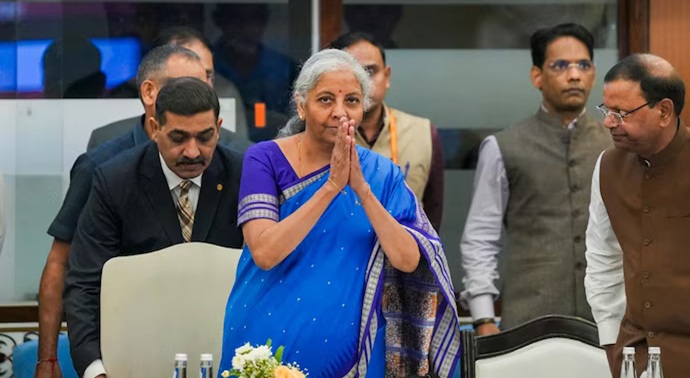
GST Council Lowers Rates On Key Textile Inputs, Boosts Industry Outlook
The 56th meeting of the GST Council, chaired by Finance
Minister Nirmala Sitharaman on September 3, 2025, announced sweeping changes in
tax rates, including major relief for the textile value chain. The Council
approved a reduction of GST on critical raw materials such as synthetic
filament yarns, staple fibres, sewing threads, and manmade fibre waste from 12-18%
to 5%.
The move is expected to ease the long-standing inverted duty
structure that has burdened spinners, weavers, and garment exporters. High
input taxes coupled with lower output rates had blocked working capital and
eroded competitiveness. The Council also approved a revised mechanism for 90%
provisional refunds on inverted duty cases, backed by data-driven risk
evaluation.
Industry stakeholders see this as a structural correction
that will directly reduce costs across the polyester and viscose value chain,
which together account for over 65% of India’s manmade fibre consumption. The
relief is likely to benefit clusters in Surat, Bhilwara, Bhiwandi, and
Ludhiana, where synthetic textiles dominate production.
Exporters, already grappling with subdued demand from the US
and EU, believe the rationalisation will sharpen India’s edge against Vietnam,
Bangladesh, and Indonesia, which enjoy favourable duty-free market access.
Analysts estimate that fabric prices could soften by 3–5%, improving India’s
share in global MMF apparel trade, currently less than 5%. Rajeev Gupta, Joint Managing Director, RSWM Limited has expressed his view on this new move from the Finance Ministry: "We welcome the Government’s forward-looking GST reform, which will have a far-reaching impact on India’s economic growth by improving affordability, reducing working capital requirements, and boosting demand across industries. For the textile sector, this is a particularly transformative step. The reduction of GST on manmade fibre from 18% to 5% and on synthetic yarn from 12% to 5% will significantly strengthen the domestic textile industry, enhance competitiveness, and stimulate consumption. The revision of the apparel slab, raising the limit from ₹1,000 to ₹2,500, will provide a powerful boost to garments and apparel demand, thereby creating new opportunities across the textile value chain. At the same time, we believe that harmonizing GST on recycled polyester fiber and its raw material, PET bottles (18%), is an important area that needs attention to unlock the full potential of circular textiles. We remain committed to driving sustainable innovation, scaling domestic production, and contributing to India’s journey towards Viksit Bharat @2047".
The Council further decided to operationalise the Goods and
Services Tax Appellate Tribunal (GSTAT) by December 2025, strengthening the
dispute resolution framework and enhancing business confidence. Industry bodies
have welcomed the measures as timely, though they await clarity on the date of
full implementation. The phased rollout of rate cuts is scheduled to begin
September 22, 2025.

Rajeev Gupta, Joint Managing Director of RSWM Ltd., described the reform as transformative, underlining its potential to ease affordability pressures, unlock working capital, and boost demand. He emphasised the importance of aligning GST on recycled polyester fibre and PET bottles to accelerate India’s circular textile economy.
If you wish to Subscribe to Textile Excellence Print Edition, kindly fill in the below form and we shall get back to you with details.












